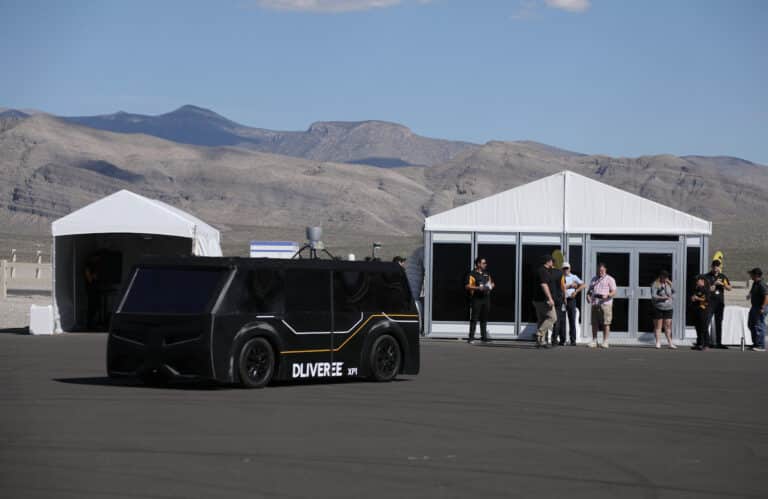Few involved with the North’s tech industry can have failed to notice the dramatic fall from grace of erstwhile tech unicorn Wejo, which filed notice of intent to enter administration with the US SEC last week having seemingly run out of cash.
Nasdaq-listed Wejo had achieved coveted unicorn status – one of just 44 UK tech companies valued at $1bn+ at the time – following its November 2021 reverse merger with Virtuoso, and counted GM and Microsoft among its key backers and partners.
By the time of last week’s notice, the company’s valuation was below $10m, with shares hovering around the $0.10 mark, and at the time of writing this had sunk to $0.065 after a year and a half in which Wejo had at times burnt through around $10m a month. Trading in Wejo’s shares is expected to be suspended from Friday following Nasdaq notification.
It had successfully reduced this figure to around $6m a month by last week’s notice, and anticipated a further 50 per cent reduction to $3m by the end of this year. With all staff instructed to stop work with immediate effect last week while the directors seek a buyer, whether it will get the opportunity to register this achievement is very much open to debate.
Since the firm announced its administration plans last week, Prolific North has spoken to a number of former senior members of the Wejo team, all of whom agreed to speak on condition of anonymity, about just what went wrong at this one time darling of the UK tech scene.
They recounted tales of high-profile celebrity marketers on near-six-figure monthly fees paid to hype the company around its listing; of six-figure sums paid for articles in Forbes, only for reality to reveal that the article was in fact published in the franchised Forbes Monaco.
That title itself folded soon after, so the costly vanity publishing project doesn’t even survive for posterity in cyberspace.
Perhaps the greatest illustration of a company out of control, however, comes in the form of the tale of the Wejo Autonomous Vehicle, aka DLIVEREE, a vehicle that was developed to both develop and demonstrate Wejo’s Autonomous Vehicle Operating System (AV-OS).
Our sources tell us that DLIVEREE began life with the creation of a £0.5m off-site research facility in Wigan codenamed Skunk Works – possibly in homage to Lockheed Martin’s top secret rapid prototyping arm of the same name, which is thought to date back to the Second World War and was formerly known as Lockheed Advanced Development Projects.
Skunk Works’ aim was to develop Wejo’s autonomous vehicle prototype and Wejo CEO Richard Barlow, a big Formula One fan, gathered some of his most qualified pistonhead friends and acquaintances to tackle the task at hand.
“What came out of the other end was basically a half-million-pound radio-controlled car,” one source revealed.
“The LiDAR cameras that were on top of the car, they aided the vehicle seeing the road ahead, they’re the eyes, receiving LiDAR three dimensional radar. They were held onto the top with gaffer tape. The whole thing was built on a KIA chassis, and they bought an autonomous vehicle kit from a company in Silicon Valley.”
Of course it wouldn’t be the first time a prototype had featured some make-do-and-mend improvisation, particularly in the storied world of eccentric British inventors.
There was just one small problem – this prototype was being shipped to Las Vegas a few days later for Wejo’s Summer 2022 Data In The Desert event, launching the prototype in the Nevada Desert at a cost, our sources tell us, of another £500,000, complete with business class travel for all and decorative racing drivers in attendance.
One source added: “The writing’s on the wall in terms of ineptitude when the printed panels to go on the vehicle turn up and they’re about 50 per cent too big. To be stuck on the car, they basically had to manually cut them to fit, rather than reprint them which would’ve taken too long. We had a testing day in Wigan at Three Sisters [racetrack], and it was a bag of shit. Bear in mind, the following day we were shipping this thing to Vegas for a launch.
“And here’s the rub – It ‘was’ autonomous, as long as somebody was inside it with an XBox controller, being fed instructions from somebody externally with the LiDAR setup in front of them.”
With the launch imminent, our sources tell us that even the company’s own PRs, on seeing the completed prototype, told them “we can’t let anybody near this thing,” but matters appeared to be in hand: “We’d picked a date that was in tune with a major event in Vegas that everybody in the industry would be at, so only about 20 people turned up, it was a fucking disaster.” Or perhaps not, if the idea was for nobody to see the finished product anyway?











